Casualty's special Jade episode proves the importance of representation behind the camera
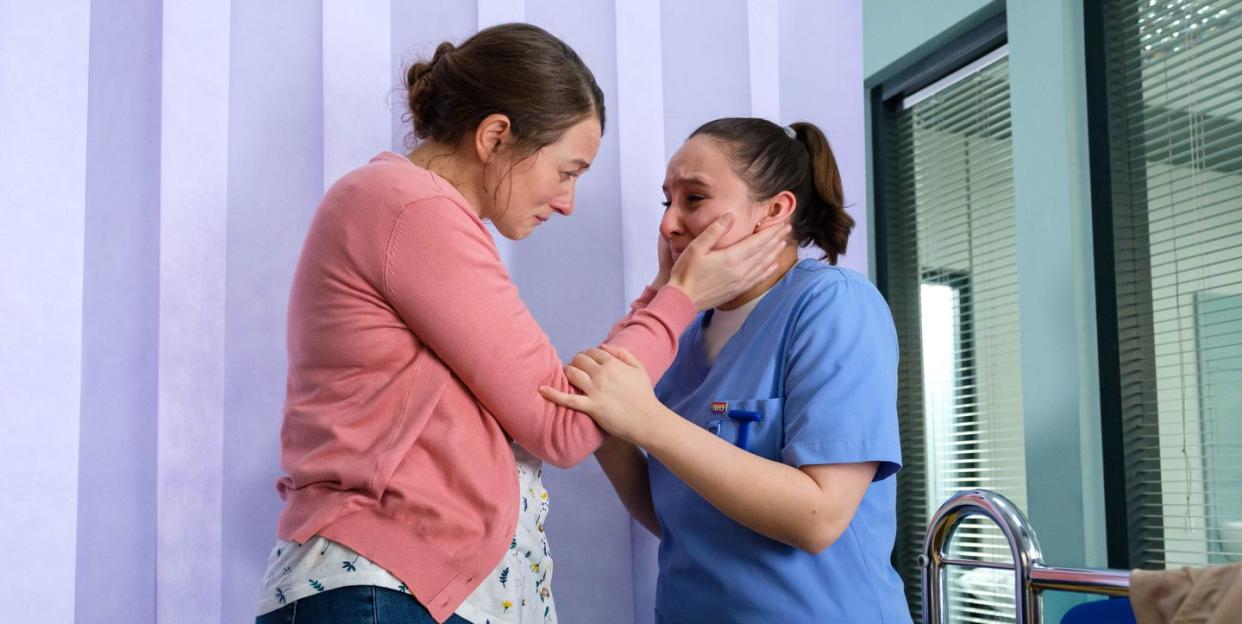
Whether you were aware or not, Casualty once again broke new ground with tonight's brilliantly-told Jade focused episode – and here's why.
Saturday night's visit to the ED, after six weeks away, took viewers on a journey through Jade's world, on the most game-changing, overwhelming day of her life. The episode, penned by deaf writers Charlie Swinbourne and Sophie Woolley, gave us a personal and authentic insight into what it's like being a deaf nurse in a busy ED.
Crucially, Jade has never been defined by her invisible disability – and never will be – but tonight's edition (July 11) gave us an astonishing insight into her deafness for the first time in her two-year history on the show.
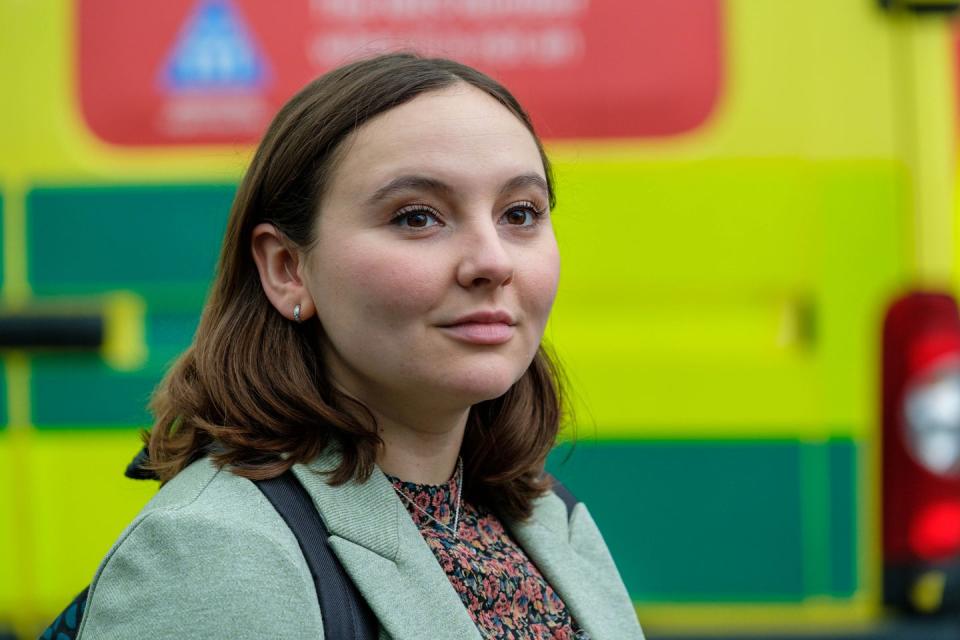
The scenes were written, directed and filmed with Jade's deafness at the forefront – and some of the challenges that she faces because of this. But even more importantly, the episode was brought to life by a pioneering team, which included two deaf writers, a deaf director – John Maidens, and two deaf actors, Sophie Stone (Susie) and, of course, Gabriella Leon, who gave us one of the performances of her career tonight as Jade.
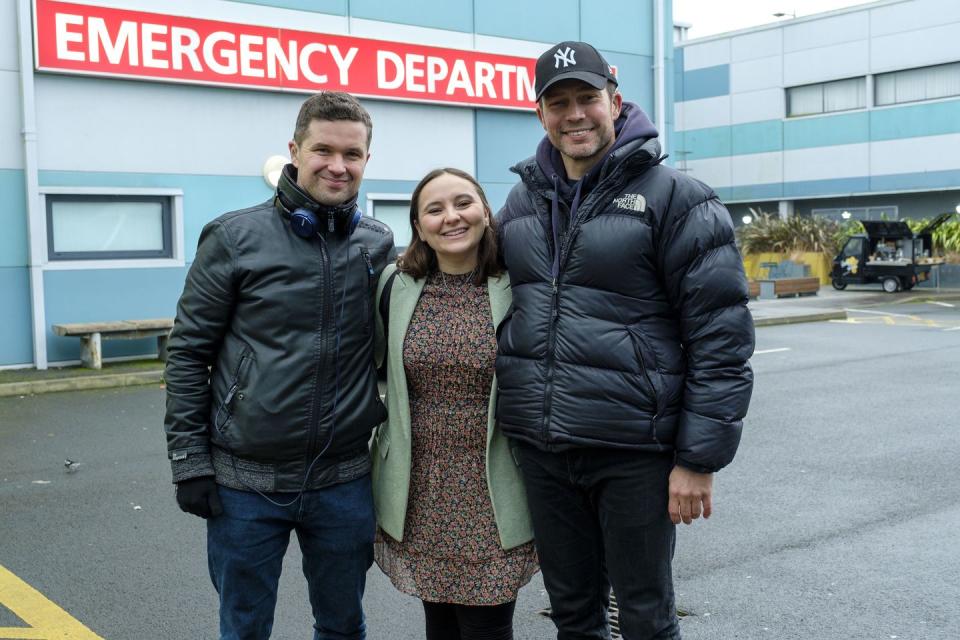
"From the beginning, Casualty were really committed to doing this authentically," scriptwriter Charlie – who is partially deaf – explained to Digital Spy.
"Knowing that a deaf director was going to take our scripts and direct it, Sophie and I felt a lot more confident and assured because we knew that John would understand what we were getting at in the script, or he'd understand what was really going on in some of these scenes. Not that a hearing director couldn't, but I think when you've got somebody who actually has lived that life, they do bring their own experience to it and I think that they are the best person to do that job.
"Sometimes you get non-deaf people who are very interested in something about deafness that maybe the deaf audience already knew, but Casualty were really interested in what deaf people thought. I feel this genuinely made it so much more authentic."
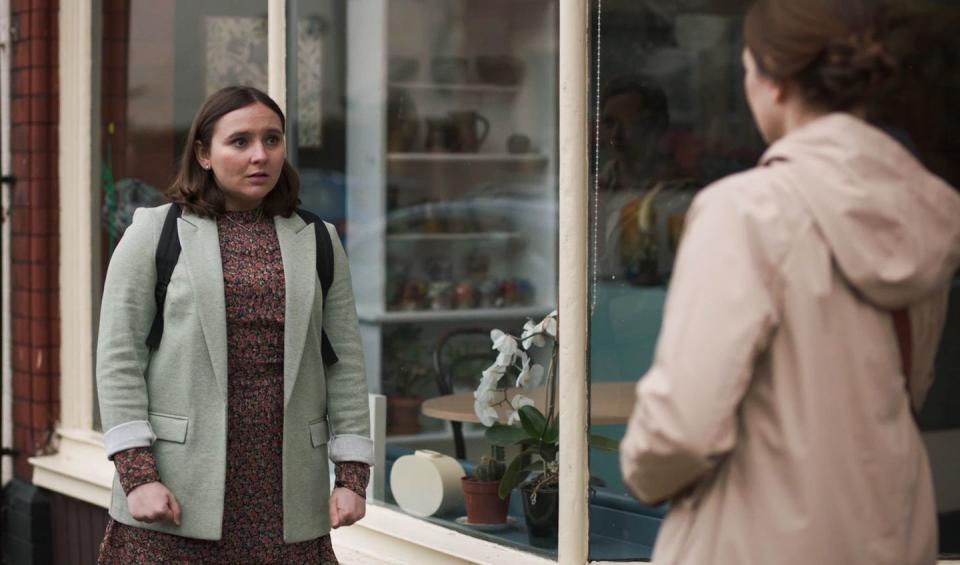
Charlie co-wrote the episode with Sophie, who he had originally met through BBC Writersroom.
Actor and writer Sophie said that she and Charlie were able to draw on their own experiences through writing for Jade and "loved every minute" of working at Casualty.
"Gabriella is just a wonderful actor to write for," she said, "I've acted on screen, written for radio and stage, and this is my first TV credit. I was co-writing with Charlie, who is fabulous, and we were emailing or WhatsApping to collaborate. I was over the moon when I found out Sophie Stone had been cast as well."
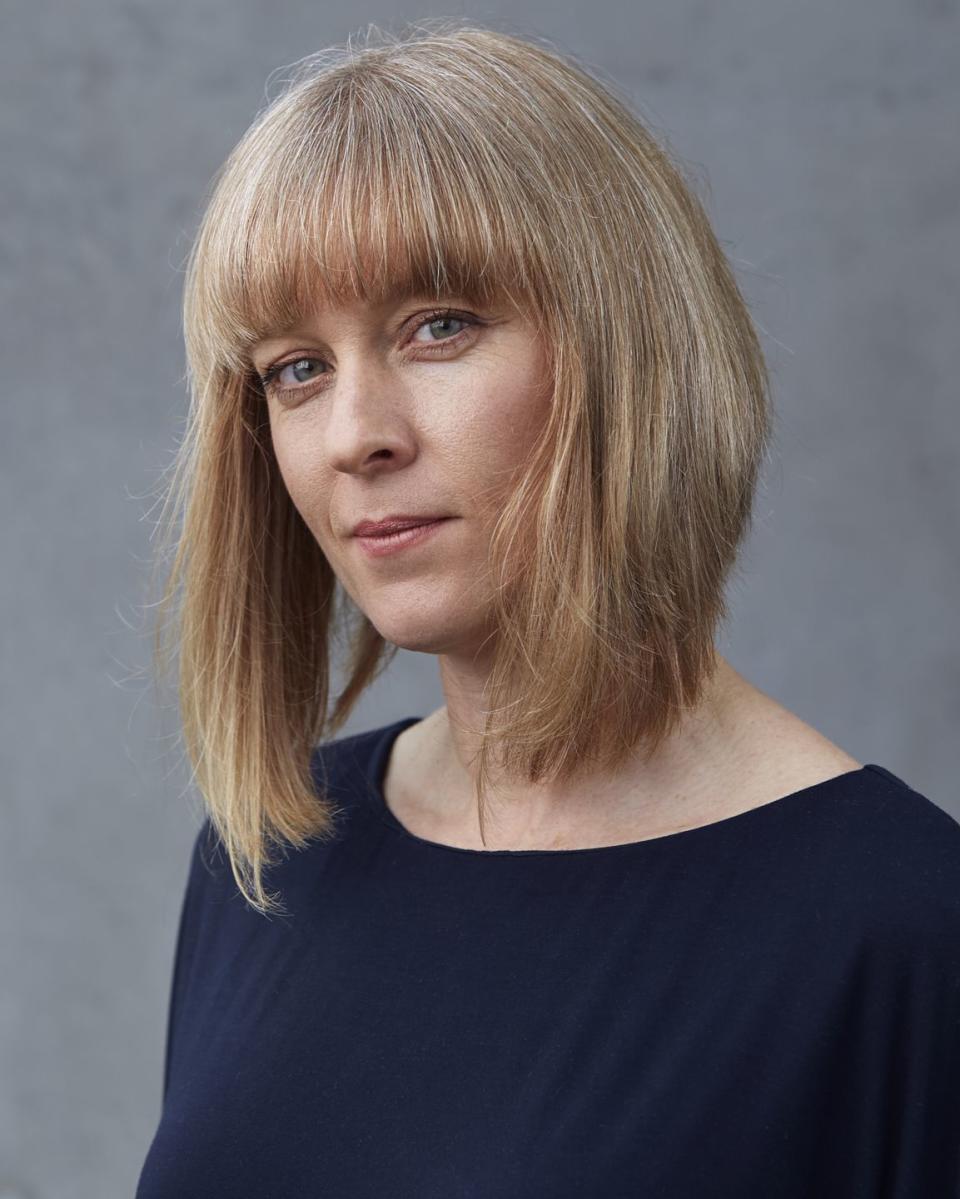
Meanwhile, John, who directed the episode and is profoundly deaf, reiterated that authenticity was what producers Loretta Preece and Dafydd Llewelyn "specifically wanted" for this episode.
"From start to finish of this production, it was especially important to portray and convey the truth of what it is like as a D/deaf person in different physical and emotional situations," he explained.
(The term "D/deaf" is used to differentiate between Deaf people, for whom sign is their first language, and deaf people, who are hard of hearing but have English as their first language and may lipread or use hearing aids.)
"There were also other key members of the production team such as the producer, Dafydd, with a disability and this is a total (and welcome) first for me on a mainstream and high-profile production."
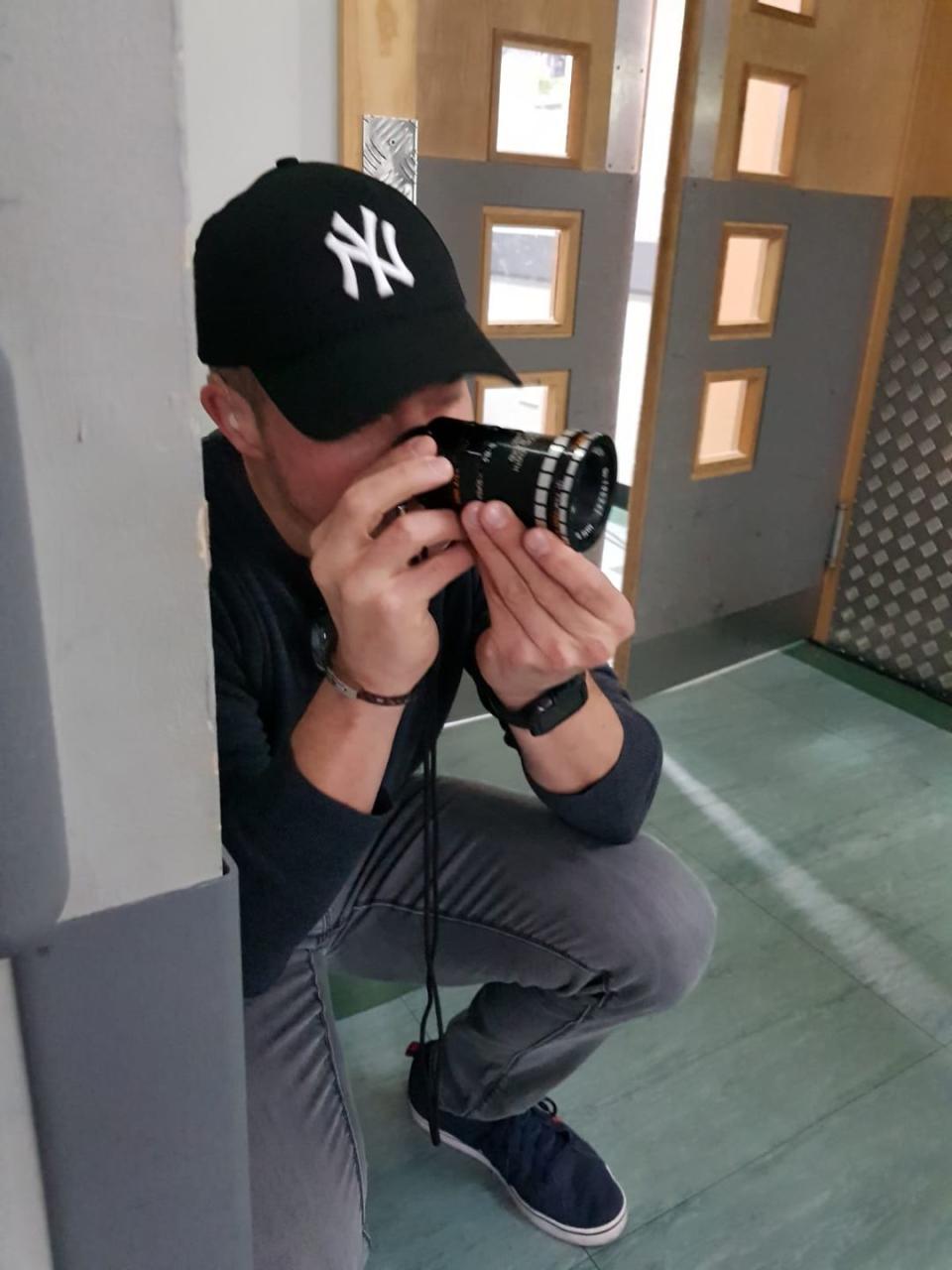
This authenticity behind the camera has also not only enabled Casualty to portray some of the misconceptions around deafness, but simultaneously gave the audience a chance to understand the complexity of different deaf experiences.
Every deaf person experiences deafness differently; something which has, up until this year, never really been addressed within soaps. It's certainly never been spotlighted in this way before.
By bringing in their own experiences of being deaf in more challenging environments, Charlie, Sophie and John were able to bring Jade's deafness into scenes organically and authentically, showing us what she hears and what she doesn't, and how she navigates her identity as a deaf person in her personal and professional life.
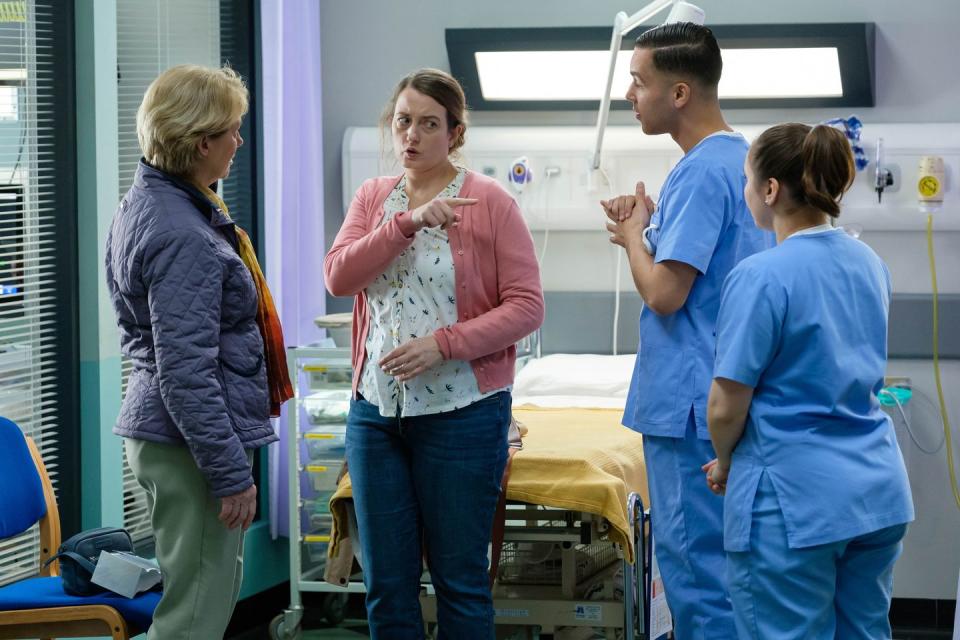
"Charlie and I pooled all our experiences," Sophie explained. "I went deaf over 20 years. I've experienced a wide range of different deaf identities because I had to keep adapting. I used to wear hearing aids, lipread and use BSL interpreters at work. Now I have a cochlear implant.
“I'm profoundly deaf and hear nothing except tinnitus, but when I put in my implant I can hear well again. All deaf people are different. Nurse Jade is different to me but I related to her a lot.
"If the only deaf person in the team is one deaf actor, and they are asked to do an inauthentic line or directed to do something a deaf character would not do, then it puts that deaf actor in a position of having to decide whether to say, 'Actually, my character would never do this'."
Charlie also explained that he and Sophie were both able to use their experiences of being deaf in group environments.
"We could bring in what we might hear or not hear and how you accept your own deafness."
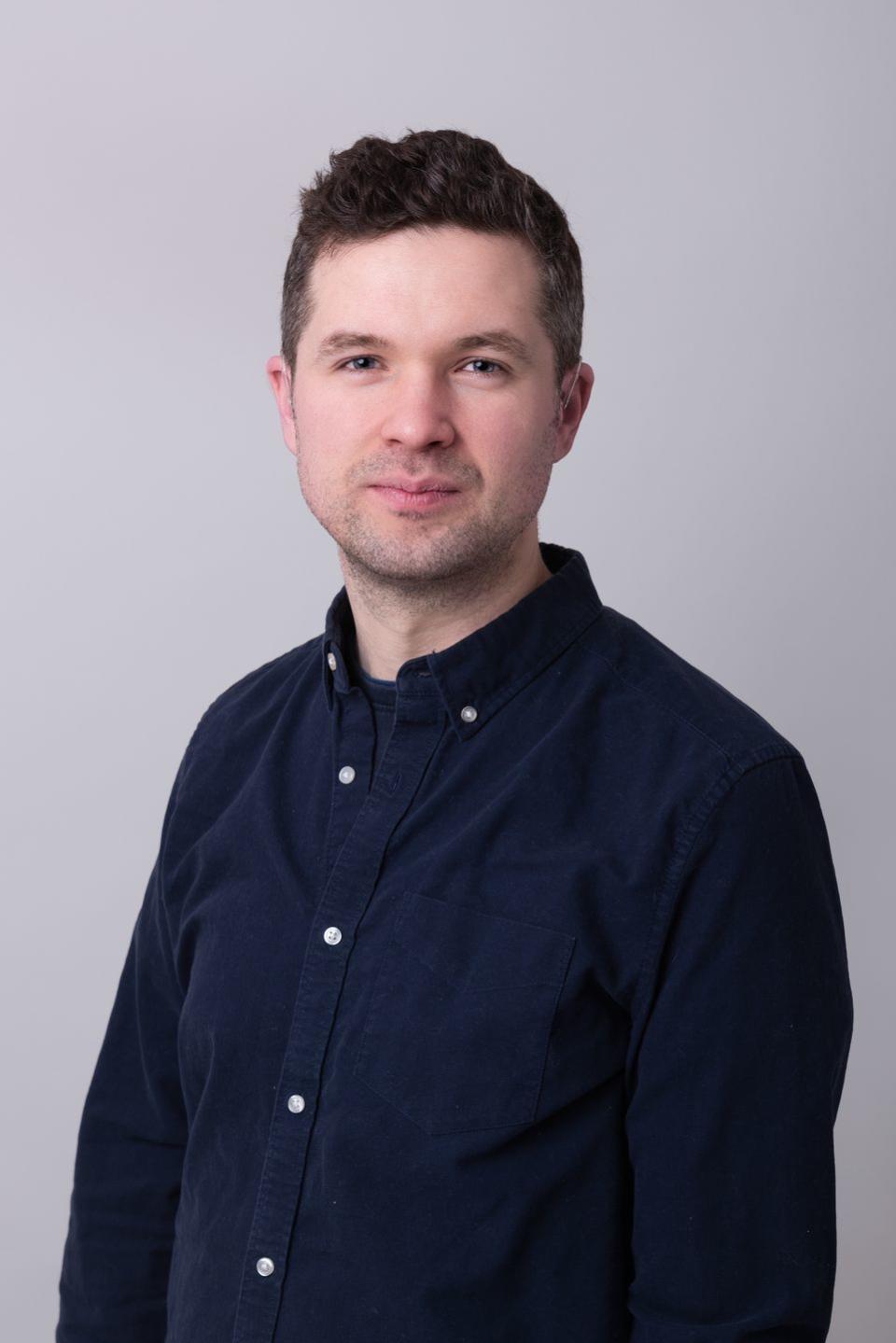
If you recognise Charlie's name, that might be because he was the inspiration behind Ben Mitchell's equally powerful story in EastEnders as well. After pitching the idea to the team, he fed back on documents and scripts for the storyline and worked on the special 'silent' episode told from Ben's point of view – another first in mainstream television.
In the same way that we experienced Ben's story in EastEnders, Casualty also used distorted audio for Jade's. In this instance, the audio also matched Jade's deafness, and her experience of the world, with a focus on her job as a nurse in a loud and busy hospital. While EastEnders' special episode showed us Ben's silent world, Casualty showed us Jade's distinct experience, highlighting that deafness is absolutely not a uniform disability.
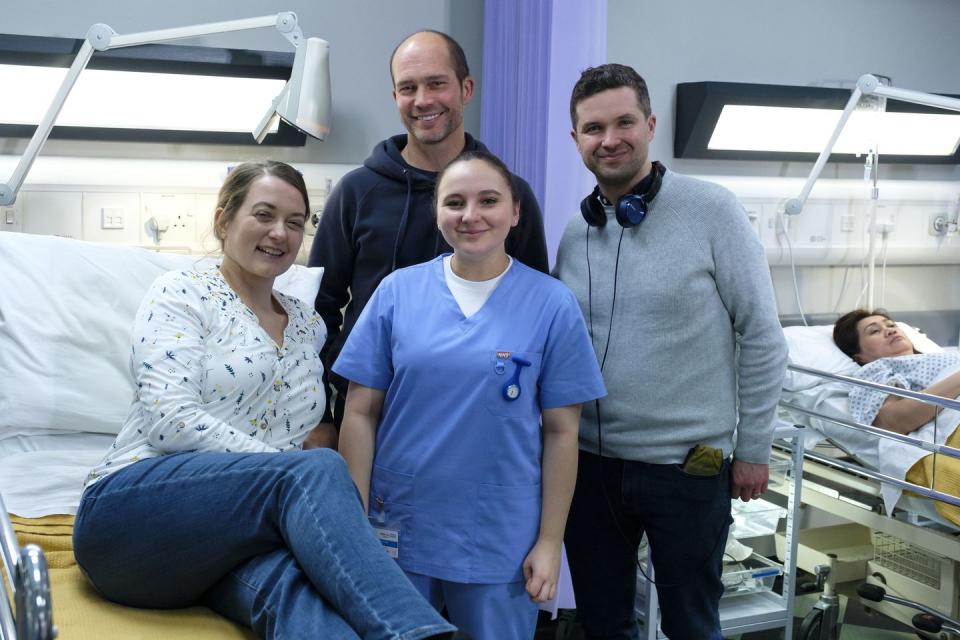
"I think what hopefully comes across in both the EastEnders and Casualty episodes is that they are deaf in different ways," Charlie explained. "Jade has got hyperacusis, which is a condition that is linked to deafness and affects how you perceive sounds. What you hear in the episode is linked to that – the distortion in sound and how she has to get through it. Each episode puts you in that person's boots.
"With Ben, he is deaf all the time. The fractured subtitles in the silent episode of EastEnders showed you a jigsaw puzzle which you are putting together – but that's my life. You're constantly missing something and then trying to fill it in and really watching people's lips. It's hard having to make so much effort just to communicate. It's similar in Jade's case as well – everything she has to do is with her all the time and I hope the audience can now see that."
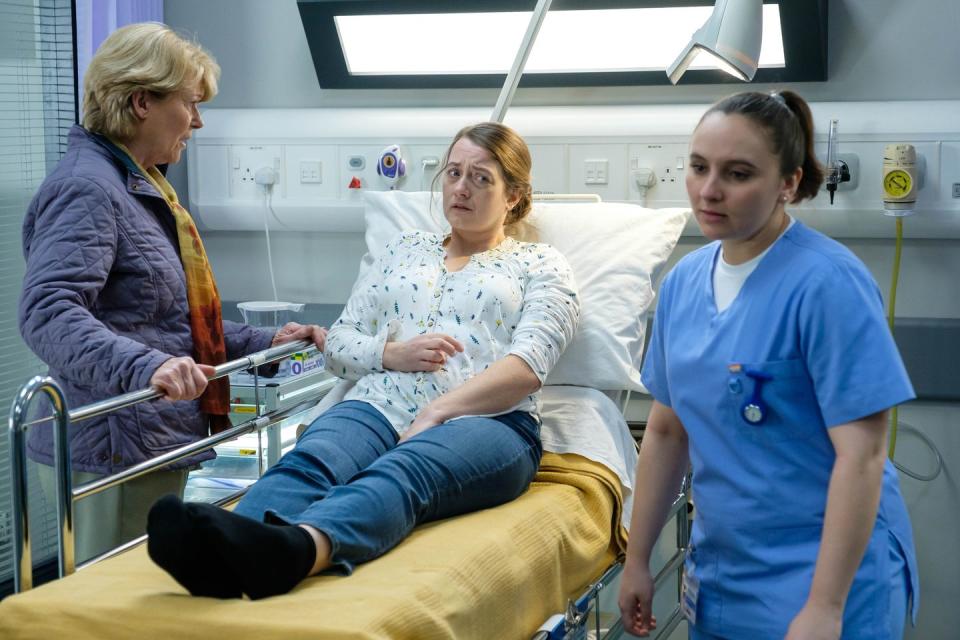
Action on Hearing Loss reports that there are 12 million people with hearing loss across the UK, which equates to around one in six of us. There are more than 50,000 children living with hearing loss in the UK, while 900,000 people in the UK have severe or profound hearing loss.
But despite the numbers, an accurate depiction of deafness on screen is really quite rare. And there is an even bigger misrepresentation behind the scenes as well.
In 2018, The Silent Child, a sign-language short film written by and starring former Hollyoaks actress Rachel Shenton, won an Oscar, having shone light on some of the issues children born to hearing parents can face. It helped to change the narrative around deafness, but more work still needs to be done in driving that forward.
As an industry that tasks itself with holding up a mirror to society, soaps and all mainstream television need to be able to reasonably and effectively reflect that society, both on screen and off. This was reflected in both the writing and directing of tonight's scenes, which ultimately fed through in Gabriella and Sophie's performance as Jade and Susie.
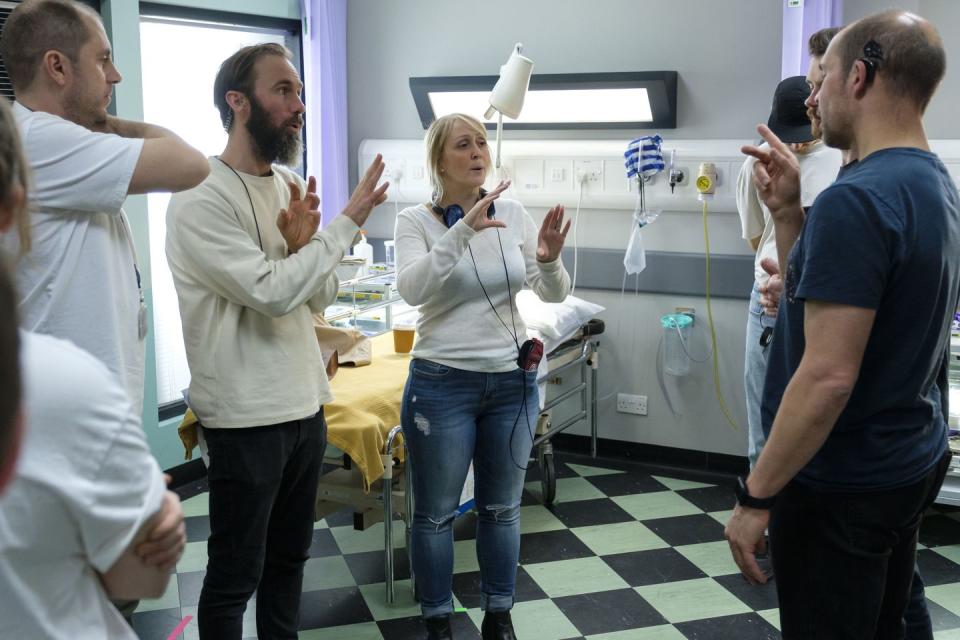
Discussing the directing process, John explained: "We worked closely to agree the precise nature and tone of spoken and signed communication, degree of eye contact, levels of lipreading, facial expressions, cultural phrases, body language and so on.
"Throughout the production there was a constant process of collective review and refinement of every aspect of performance to ensure a truthful and nuanced portrayal. In short, it was a proper team effort!"
The team effort enabled Casualty to depict Jade's day candidly, allowing viewers to hear her auditory world and what she hears with and without her hearing aids. It also addressed some of the slightly obtuse questions Jade faced around lipreading, to her difficulties in acclimatising to the noise inside the ED – and the environmental noises outside of it. And it wasn't just Jade's world we saw, either.
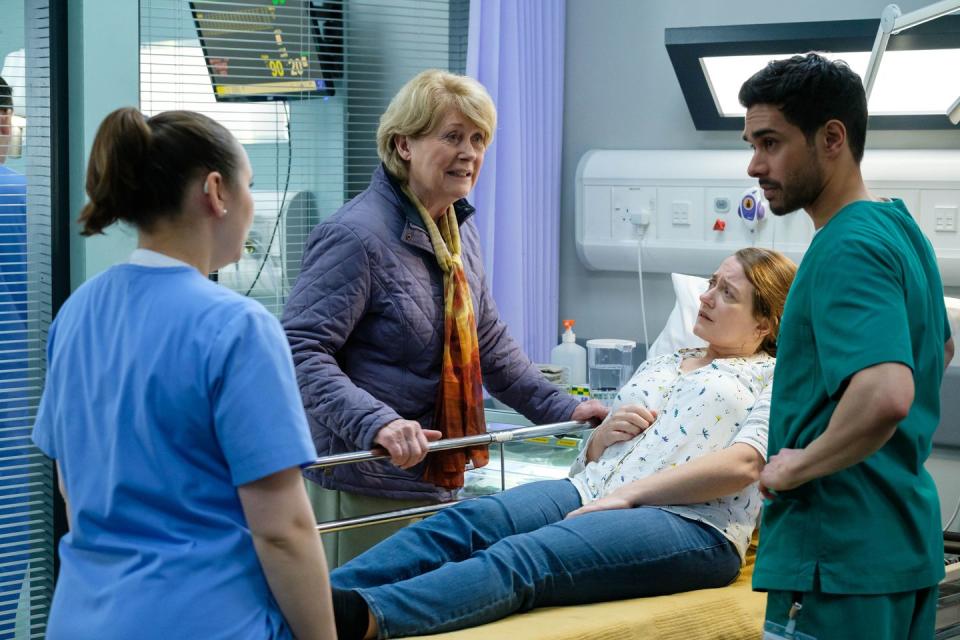
Through her mum Susie and grandmother Theresa, Casualty explored three generations of deafness and how it has impacted and reached them all differently. We learned that her mum Susie is a deaf BSL (British Sign Language) user, often having to navigate a society that doesn't see her disability and doesn't always want to try and understand it. But to Jade's frustration, it later became apparent that Theresa not only hadn't learned sign language to communicate with Susie, but actually, didn't really understand deafness at all.
In his work on Casualty and EastEnders, Charlie has managed to tackle and break down many of the preconceptions of deafness, allowing the audience to see different deaf characters and their experiences. However, he also believes that not having a wider range of representation behind the camera can often be what generates stereotypes about minority groups on screen, especially when it comes to deafness and disability.
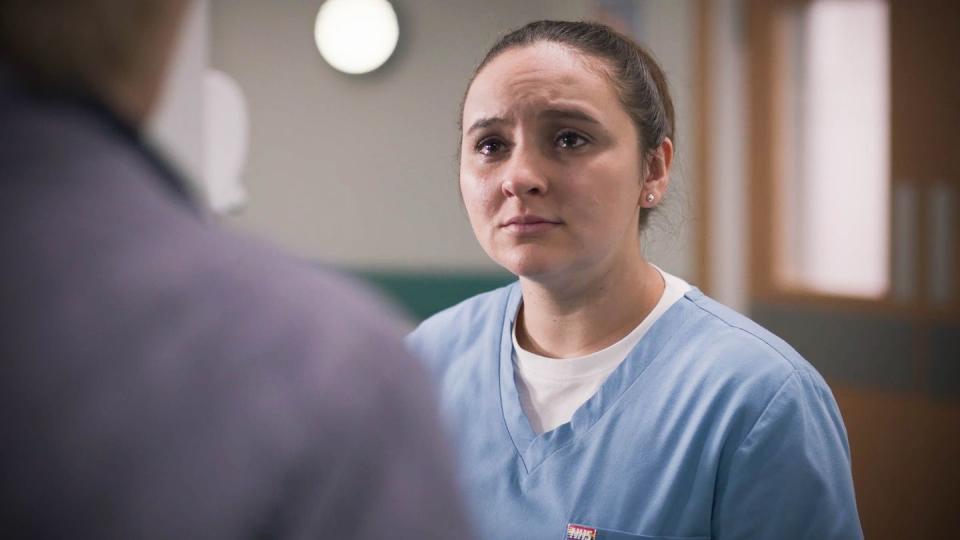
"I feel that I come from Deaf culture. My parents are Deaf. I grew up going to a deaf club in Nottingham with my parents and mixing with deaf people young and old of all different backgrounds", Charlie said.
"When I write a deaf story, I'm thinking about all those people that I've known in my life and all their different experiences. I think we can go into it in a richer, deeper way because we come from that area. If you don't involve deaf people, you can have stereotypes.
"It's the same for other minority groups, where people can go down a stereotypical route a lot more often because that's maybe what they think about deaf life. Even when we were writing and rewriting the script, we would be asked what the deaf community would think all the time. There was a real interest in following it all the way through the process and thinking about deafness from a deaf person's point of view."
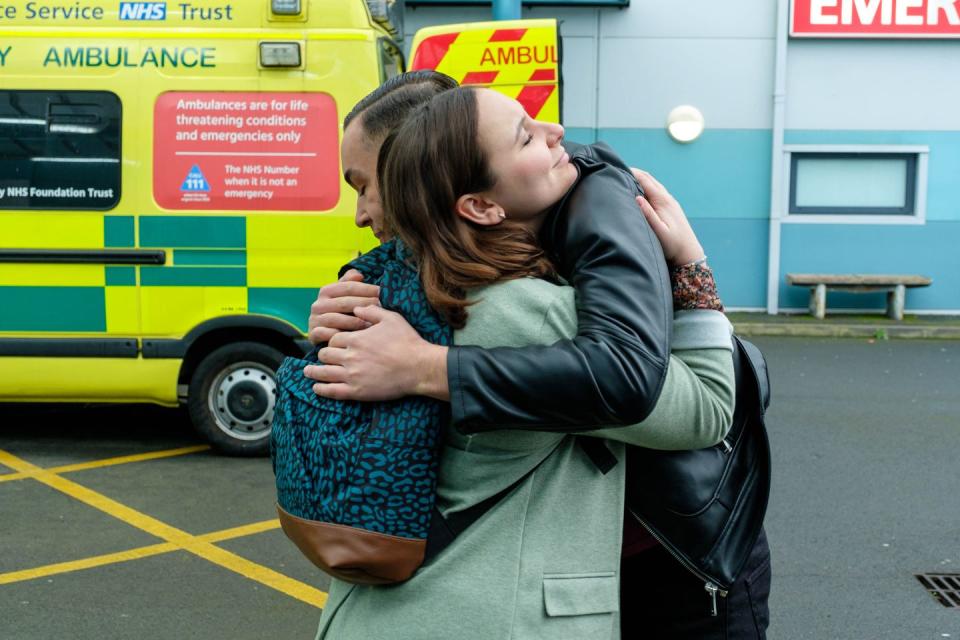
As we've seen plenty of times over the years, authentic stories require the actors to understand the experiences of the people whose stories they are telling, and Casualty has led the way in showing that what goes on behind the scenes is just as important as well. Without this representation off-camera, there's a risk of story content getting trapped in an echo chamber that doesn't represent the audience or the wider world.
"I think nowadays when you see diversity represented on the screen, the audience is starting to expect it to come from a person from that background. I think that is just really important," Charlie explained.
Sophie added: "It makes a big difference in a show-making process to have more deaf people in all parts of the creative team. We often see one deaf character on TV but not a group or a family. The most interesting dialogues can happen when you don't dilute the language."
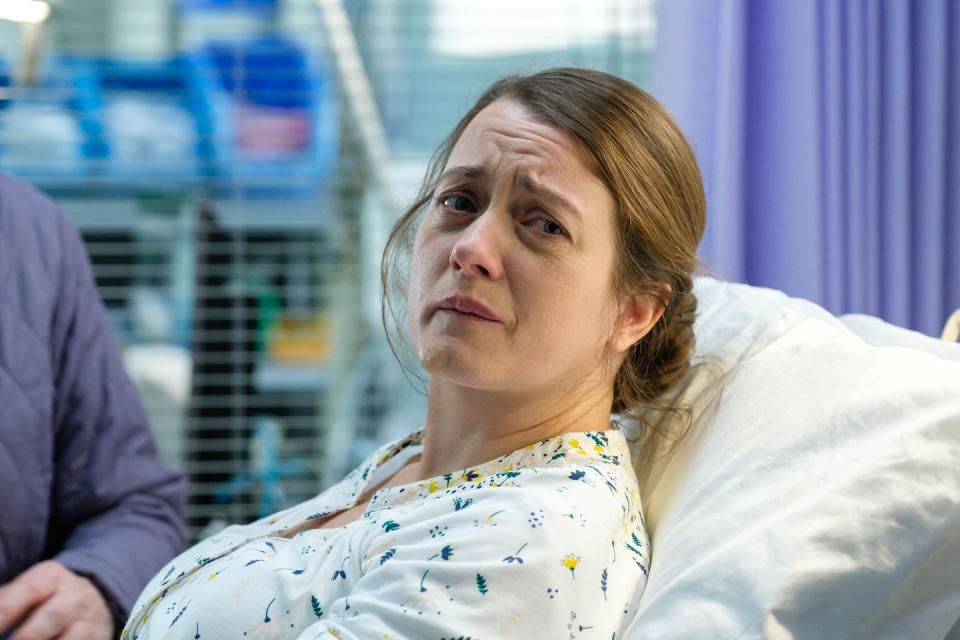
John, meanwhile, also agreed that a need for better behind-the-camera representation was of vital importance.
"There is a very real and urgent need for more influential disabled voices behind the camera to create, write, produce, direct and commission more representative content. There are so many different untold stories yet to be seen and heard. "
But while work is being done to redress the balance, it's clear there is still a long way to go. And while Casualty and EastEnders have taken a big step forward, we're not there yet.
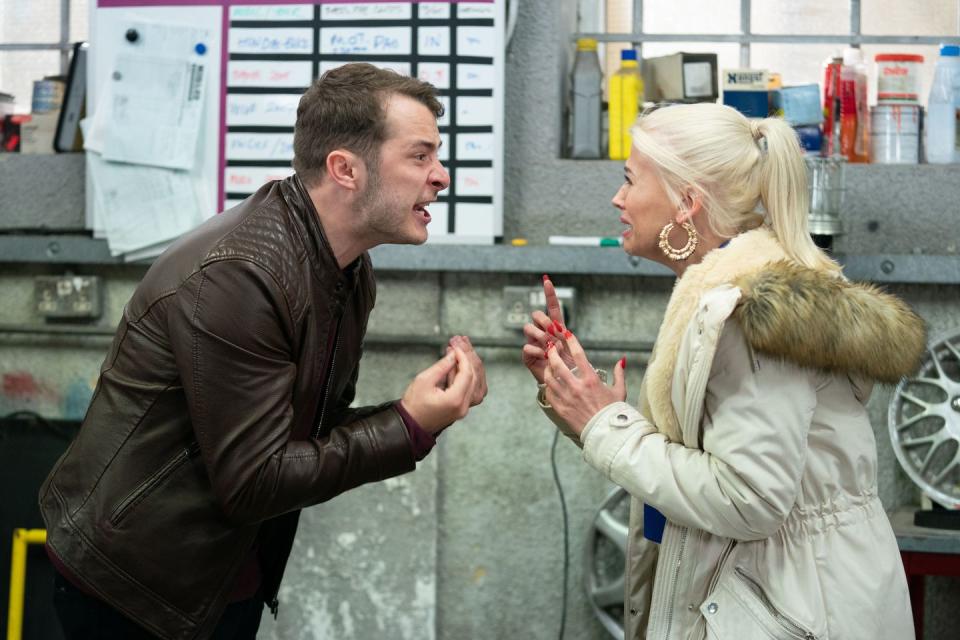
Ofcom's Diversity and equal opportunities in television report last year showed that disabled people remain under-represented, with no improvement from the year before. The proportion of employees who self-define as disabled remains at 6% – the same as it did in 2018. This is still very low in comparison to the UK labour market average of 18%.
2015 saw the launch of Diamond, "a diversity monitoring system used by the BBC, ITV, Channel 4, Channel 5 and Sky to obtain consistent diversity data on programmes they commission." Diamond's objective is to answer the key questions – ‘Who’s on TV’ and ‘Who makes TV’ – with greater confidence. More recently, the BBC have pledged 100 million to make more diverse programmes and employ more diverse staff. But is all this enough?
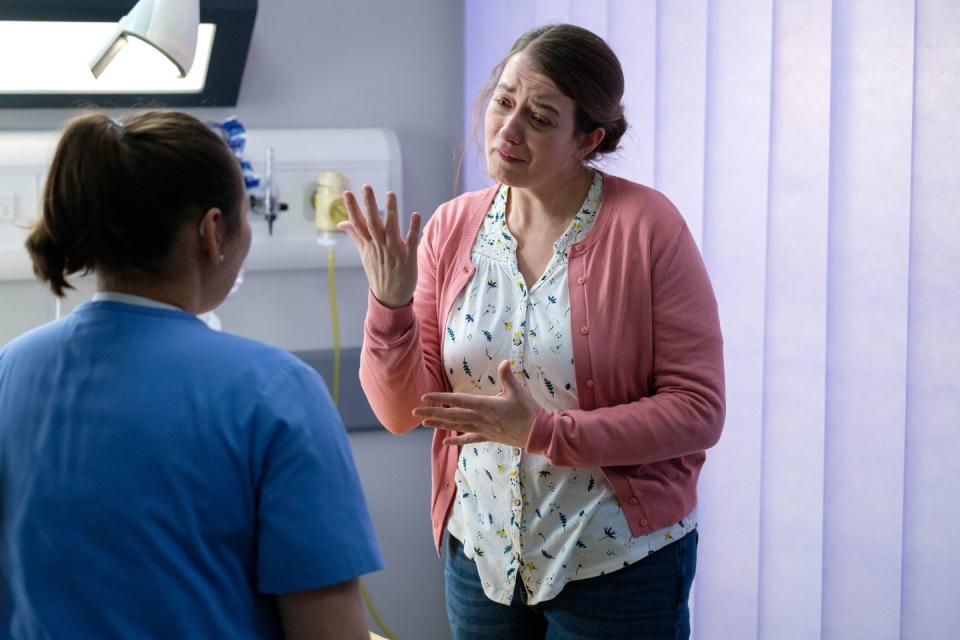
"I really hope we are now starting to see more deaf representation," Charlie said. " I think what's really important is that it's authentic, that deaf people are involved in creating it and being part of it, as has been the case for me. I just think that's absolutely crucial.
“Maybe there's some similarities with other minority groups but the industry doesn't have very many deaf people in it."
Casualty has undeniably delivered a first in mainstream television tonight – allowing deaf representation to be firmly at the forefront behind the camera as well as in front of it. The need for representation off screen is a given, and Jade's special episode should be considered the starting point not the finish line.
Granted, Jade and Susie's story will continue to be told through actresses Gabriella and Sophie on screen in the weeks to come, but the big question is whether the work will continue off-screen as well.
"The key to achieving better representation is to ensure it is led and guided by those who are themselves representative", John said. "This will then accurately inform and influence the effective removal of the many specific barriers to a successful career in the media."
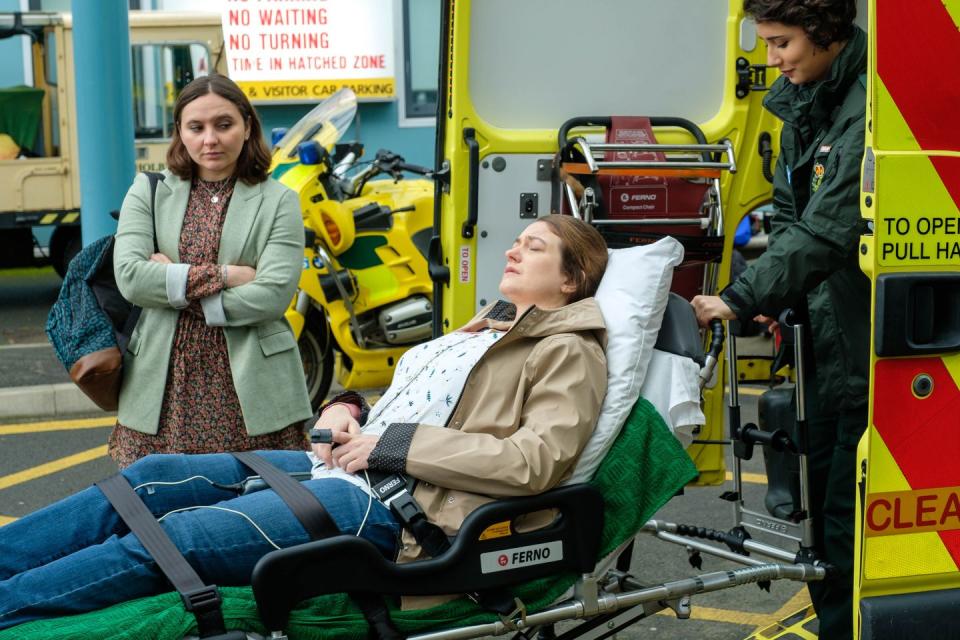
"Broadcasters could look at recruitment and help make sure D/deaf creatives move around and work on different shows", Sophie added.
"They could look at the career movement of D/deaf workers. The more places we work, the more experience we get. I write a broad range of work, like everyone else. That's what I do in radio and theatre. And that's what I plan to do in TV."
And while Charlie accepted that tonight's episode was a step forward, he also agreed that it needs to merely be just the start.
"Going forward, I really hope that that is just the beginning in the industry, but I think there's still a long way to go."
This article was produced with the kind assistance of Deaf Umbrella.
Casualty continues on Saturday, July 18 on BBC One.
Digital Spy now has a newsletter – sign up to get it sent straight to your inbox.
Read more Casualty spoilers on our dedicated homepage
Want up-to-the-minute soaps news, spoilers and gossip on your social feeds? Just hit 'Like' on our Digital Spy Soaps Facebook page and 'Follow' on our @soapscoop Twitter account.
You Might Also Like

